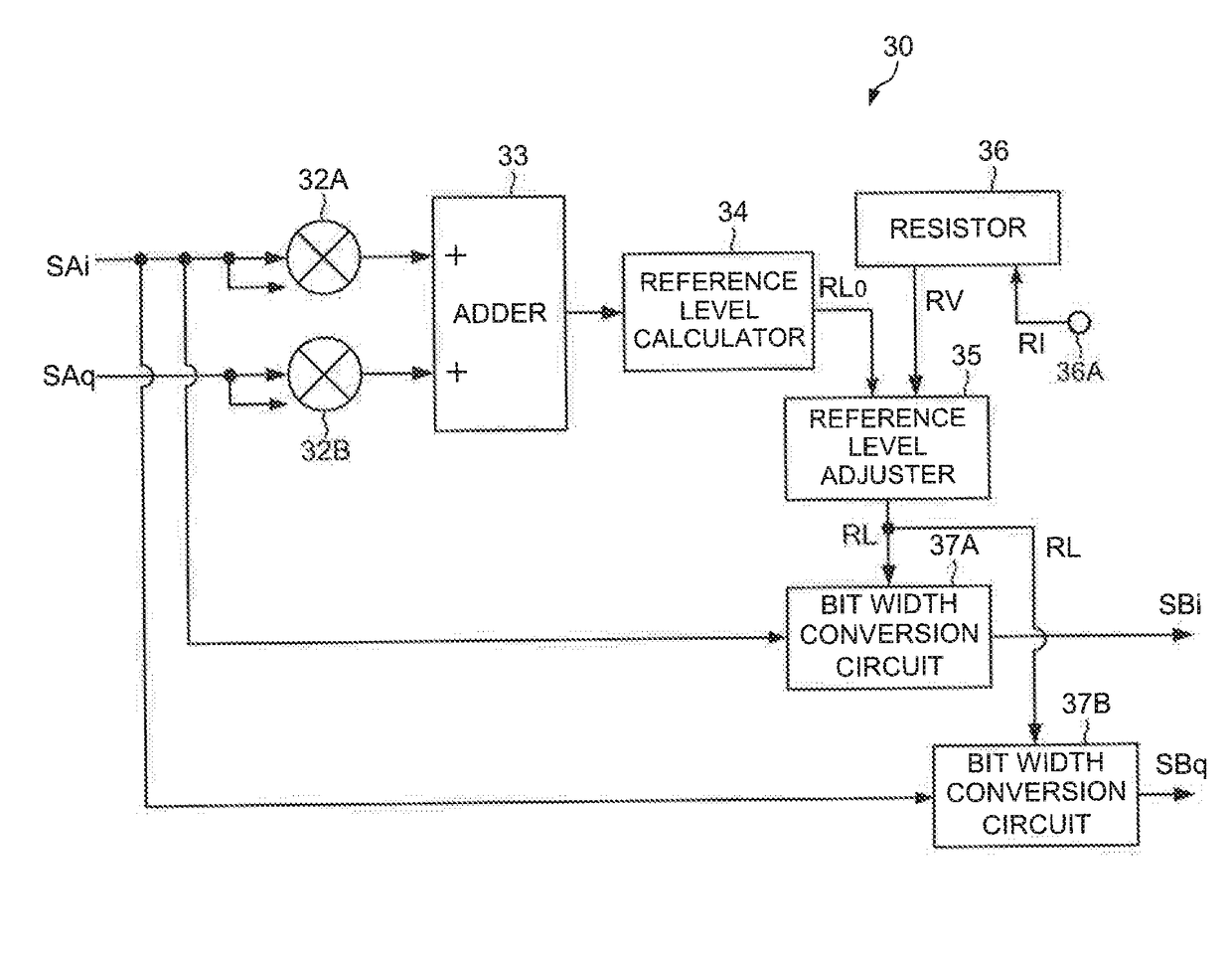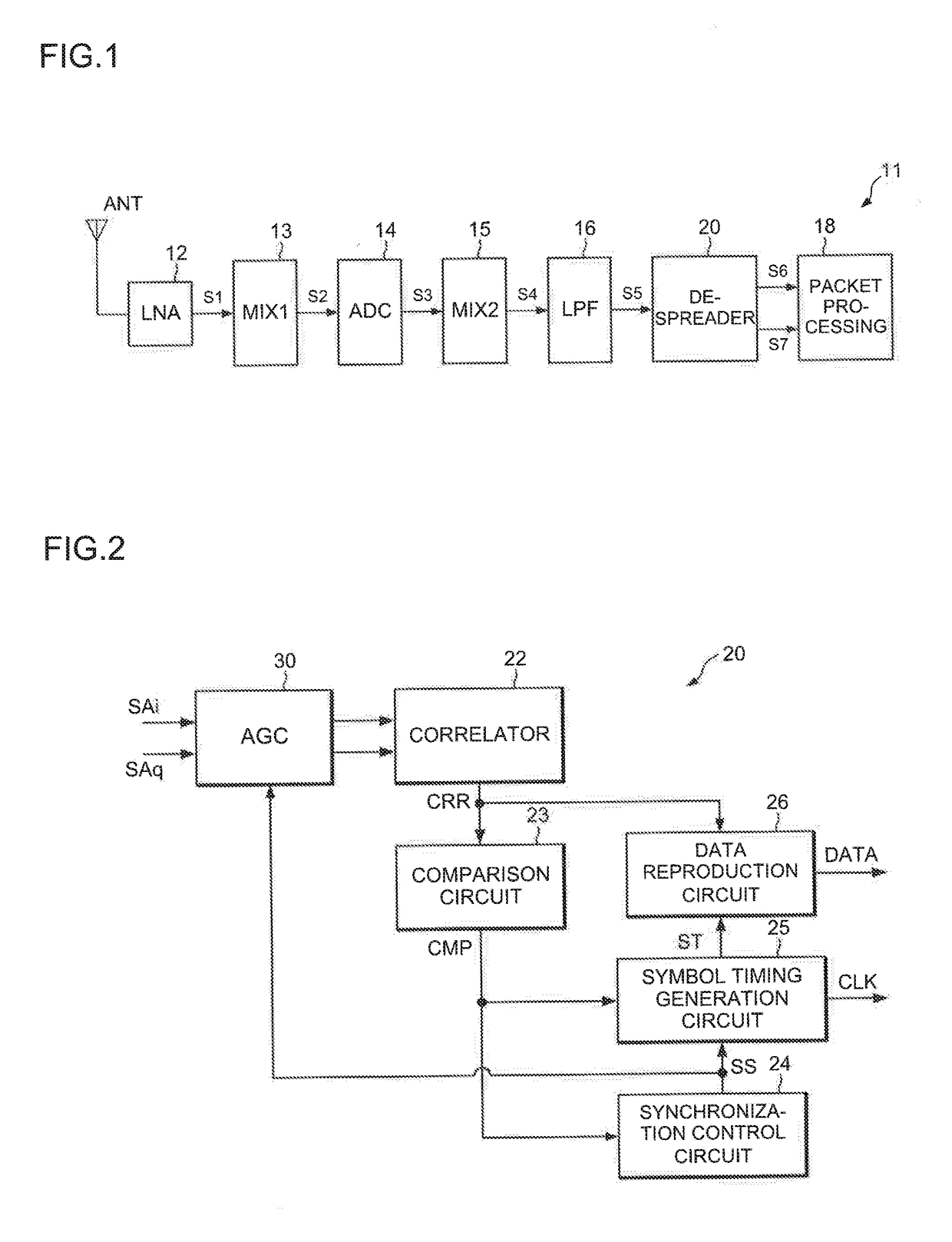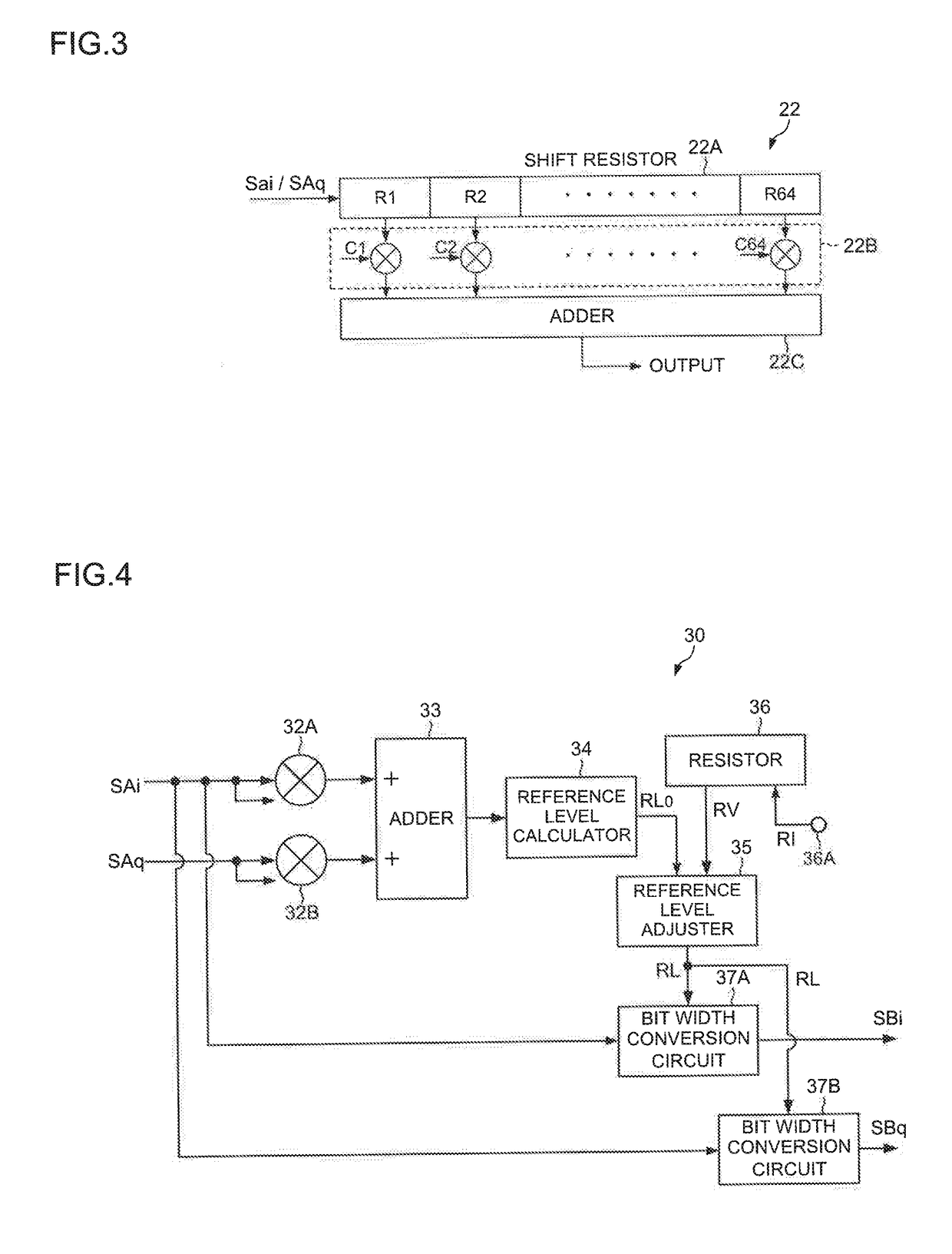Automatic gain control (AGC) circuit, despreading circuit, and method for reproducing reception data
a gain control and circuit technology, applied in the direction of amplification control, transmission, electric devices, etc., can solve the problems of degrading reception performance and reducing the resolution of output signals, and achieve the effects of high output signal resolution, small quantization error, and high resolution
- Summary
- Abstract
- Description
- Claims
- Application Information
AI Technical Summary
Benefits of technology
Problems solved by technology
Method used
Image
Examples
first embodiment
[0023]FIG. 1 is a block diagram showing an example of a configuration of a receiver 11 using a spread spectrum (SS) technology. The spread spectrum receiver 11 receives a transmission signal the spectrum of which is spread by, for example, direct sequence (DS) spreading.
[0024]A reception signal received by an antenna ANT of the spread spectrum receiver 11 is input to a low-noise amplifier circuit (LNA) 12. The LNA 12 amplifies the reception signal, and a mixer circuit (MIX1) 13 converts the frequency of the amplified reception signal S1 from a radio frequency (RF) into an intermediate frequency (IF).
[0025]A first analog-to-digital converter (ADC circuit) 14 applies an analog-to-digital conversion to the IF signal S2 after the frequency conversion, to digitize the IF signal S2. In the spread spectrum receiver 11, each signal may be processed as a signal constituting of an in-phase signal (I signal), a quadrature signal (Q signal), and the like.
[0026]The IF signal S3 digitized by the ...
second embodiment
[0052]FIG. 7 is a block diagram showing an example of a configuration of an AGC circuit 40 according to a second embodiment. The difference between the AGC circuit 40 and the AGC circuit 30 according to the first embodiment is that the AGC circuit 40 includes first and second resistors 36A and 36B and a selector 41. The other components of the AGC circuit 40 are the same as those of the AGC circuit 30 according to the first embodiment.
[0053]As in the case of the first embodiment, the AGC circuit 40 converts m-bit width signals SAi and SAq input thereto into n-bit width signals SBi and SBq (m>n), respectively, and outputs the signals SBi and SBq. In the following description, the signals SAi and SAq each have a 10-bit width (m=10), and the signals SBi and SBq each have a 3-bit width. However, the bit widths are not limited thereto, and can take any number as long as m>n is satisfied.
[0054]The first and second resistors 36A and 36B store first and second adjustment values (or setting ...
PUM
 Login to View More
Login to View More Abstract
Description
Claims
Application Information
 Login to View More
Login to View More - R&D
- Intellectual Property
- Life Sciences
- Materials
- Tech Scout
- Unparalleled Data Quality
- Higher Quality Content
- 60% Fewer Hallucinations
Browse by: Latest US Patents, China's latest patents, Technical Efficacy Thesaurus, Application Domain, Technology Topic, Popular Technical Reports.
© 2025 PatSnap. All rights reserved.Legal|Privacy policy|Modern Slavery Act Transparency Statement|Sitemap|About US| Contact US: help@patsnap.com



